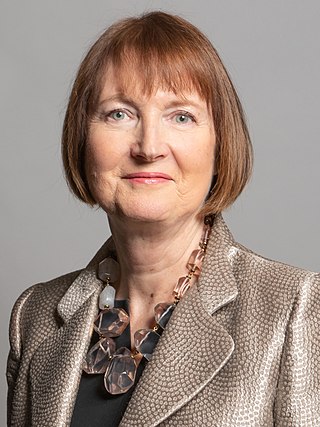Related Research Articles

The American Civil Liberties Union (ACLU) is an American nonprofit human rights organization founded in 1920. The organization strives "to defend and preserve the individual rights and liberties guaranteed to every person in this country by the Constitution and laws of the United States." The ACLU works through litigation and lobbying and has more than 1,800,000 members as of July 2018, with an annual budget over $300 million. ACLU affiliates are active in all 50 states, Washington, D.C., and Puerto Rico. The ACLU provides legal assistance in cases where it considers civil liberties at risk. Legal support from the ACLU can take the form of direct legal representation or preparation of amicus curiae briefs expressing legal arguments when another law firm is already providing representation.
Although Australia is considered to have, in general, both freedom of speech and a free and independent media, certain subject-matter is subject to various forms of government censorship. These include matters of national security, judicial non-publication or suppression orders, defamation law, the federal Racial Discrimination Act 1975 (Cth), film and literature classification, and advertising restrictions.

The National Secular Society (NSS) is a British campaigning organisation that promotes secularism and the separation of church and state. It holds that no one should gain advantage or disadvantage because of their religion or lack of it. It was founded by Charles Bradlaugh in 1866.

Harriet Ruth Harman is a British politician and solicitor who has served as Member of Parliament (MP) for Camberwell and Peckham, formerly Peckham, since 1982. A member of the Labour Party, she has served in various Cabinet and Shadow Cabinet positions.
Censorship in the United Kingdom was at different times more or less widely applied to various forms of expression such as the press, cinema, entertainment venues, literature, theatre and criticism of the monarchy. While there is no general right to free speech in the UK, British citizens have a negative right to freedom of expression under the common law, and since 1998, freedom of expression is guaranteed according to Article 10 of the European Convention on Human Rights, as applied in British law through the Human Rights Act.
Internet censorship in Australia is enforced by both the country's criminal law as well as voluntarily enacted by internet service providers. The Australian Communications and Media Authority (ACMA) has the power to enforce content restrictions on Internet content hosted within Australia, and maintain a blocklist of overseas websites which is then provided for use in filtering software. The restrictions focus primarily on child pornography, sexual violence, and other illegal activities, compiled as a result of a consumer complaints process.
In a legal context, a chilling effect is the inhibition or discouragement of the legitimate exercise of natural and legal rights by the threat of legal sanction. A chilling effect may be caused by legal actions such as the passing of a law, the decision of a court, or the threat of a lawsuit; any legal action that would cause people to hesitate to exercise a legitimate right for fear of legal repercussions. When that fear is brought about by the threat of a libel lawsuit, it is called libel chill. A lawsuit initiated specifically for the purpose of creating a chilling effect may be called a strategic lawsuit against public participation (SLAPP).

Index on Censorship is an organisation campaigning for freedom of expression, which produces a quarterly magazine of the same name from London. It is directed by the non-profit-making Writers and Scholars International, Ltd (WSI) in association with the UK-registered charity Index on Censorship, which are both chaired by the British television broadcaster, writer and former politician Trevor Phillips. Index is based at 1 Rivington Place in central London.

Human rights in the United Kingdom concern the fundamental rights in law of every person in the United Kingdom. An integral part of the UK constitution, human rights derive from common law, from statutes such as Magna Carta, the Bill of Rights 1689 and the Human Rights Act 1998, from membership of the Council of Europe, and from international law.

Censorship in the Empire of Japan was a continuation of a long tradition beginning in the feudal period of Japan. Government censorship of the press existed in Japan during the Edo period, as the Tokugawa bakufu was in many ways a police state, which sought to control the spread of information, including Christianity, the influx of Western ideas, pornography and any political writings critical of the shōgun and government.
The Society for Promotion of Community Standards Inc. ("SPCS") is a conservative lobby group in New Zealand. A registered charity and incorporated society, the Society has taken a strong pro-censorship stance and clashed many times with the Office of Film and Literature Classification. They have also advocated socially conservative positions on issues such as abortion, euthanasia and same-sex marriage.
In Canada, appeals by the judiciary to community standards and the public interest are the ultimate determinants of which forms of expression may legally be published, broadcast, or otherwise publicly disseminated. Other public organisations with the authority to censor include some tribunals and courts under provincial human rights laws, and the Canadian Radio-television and Telecommunications Commission, along with self-policing associations of private corporations such as the Canadian Association of Broadcasters and the Canadian Broadcast Standards Council.
Patricia Maureen Bartlett was a New Zealand conservative Catholic activist of the 1970s and 1980s.
Censorship in Thailand involves the strict control of political news under successive governments, including by harassment and manipulation.

Human rights in Jordan are similar to or better than those elsewhere in the Middle East. Human Rights Watch reported in January 2018 that although recently there have been far-reaching reforms of the laws and regulations in the country, abuses against basic rights such as freedom of expression persisted.
Censorship was an essential element of Portuguese national culture throughout the country's history up until the Carnation Revolution in 1974. From its earliest history Portugal was subject to laws limiting freedom of expression. This was mainly due to the influence of the Church since the time of Ferdinand I, who requested that Pope Gregory XI institute episcopal censorship. Later, the censorship would also apply to the publication of other written works. Portuguese citizens still remember the Estado Novo's censorship policy, institutionalizing strict control over the media, resorting to measures used previously against newspapers and systematic sequestering of books. In fact, every political regime was very careful with the legislation related to the area of press freedom—in most cases restricting it. In the five centuries of the history of Portuguese press, four were marked by censorship.

Freedom of speech is the concept of the inherent human right to voice one's opinion publicly without fear of censorship or punishment. "Speech" is not limited to public speaking and is generally taken to include other forms of expression. The right is preserved in the United Nations Universal Declaration of Human Rights and is granted formal recognition by the laws of most nations. Nonetheless, the degree to which the right is upheld in practice varies greatly from one nation to another. In many nations, particularly those with authoritarian forms of government, overt government censorship is enforced. Censorship has also been claimed to occur in other forms and there are different approaches to issues such as hate speech, obscenity, and defamation laws.
Freedom of expression in Canada is protected as a "fundamental freedom" by section 2 of the Canadian Charter of Rights and Freedoms; however, in practice the Charter permits the government to enforce "reasonable" limits censoring speech. Hate speech, obscenity, and defamation are common categories of restricted speech in Canada. During the 1970 October Crisis, the War Measures Act was used to limit speech from the militant political opposition.
Book censorship is the removal, suppression, or restricted circulation of literary, artistic, or educational material – of images, ideas, and information – on the grounds that these are morally or otherwise objectionable according to the standards applied by the censor. Censorship is "the regulation of speech and other forms of expression by an entrenched authority". The overall intent of censorship, in any form, is to act as "a kind of safeguard for society, typically to protect norms and values [...] censorship suppresses what is considered objectionable from a political, moral, or religious standpoint."
David Alec Webb was a British actor and anti-censorship campaigner.
References
- ↑ Sutherland 1983, p. 58.
- ↑ Sutherland 1983, p. 70.
- ↑ Johnston, O.R. (22 September 1977). "The Law of the Cinema". Third Way. Vol. 1, no. 18. Hymns Ancient & Modern Ltd. p. 14.